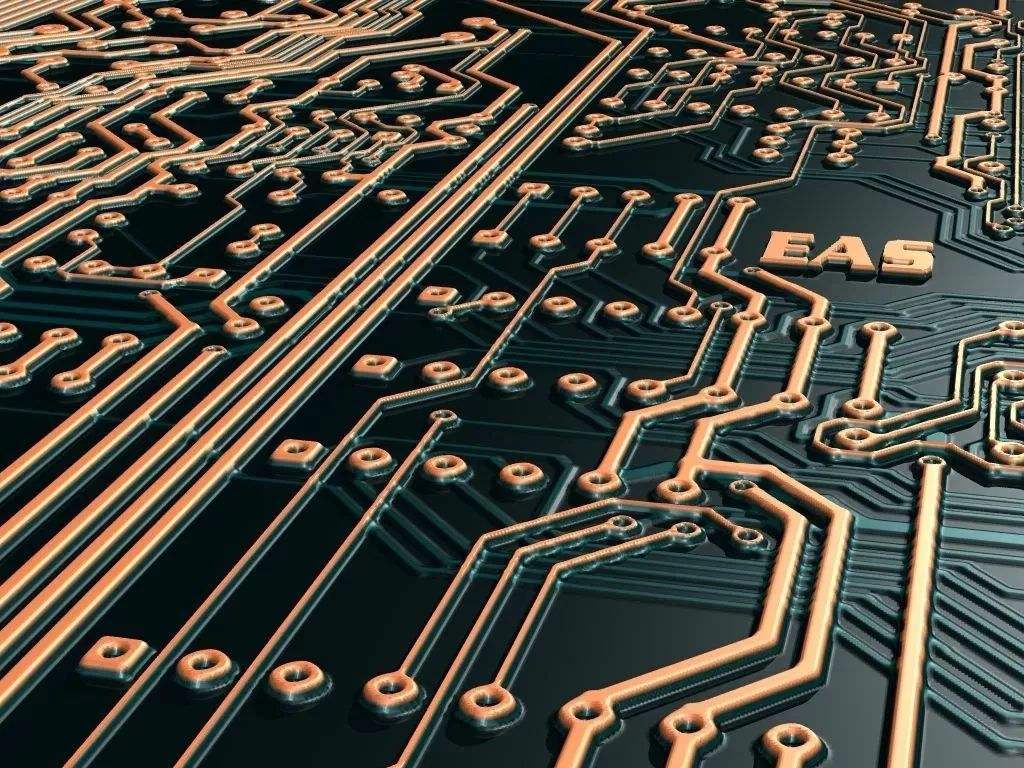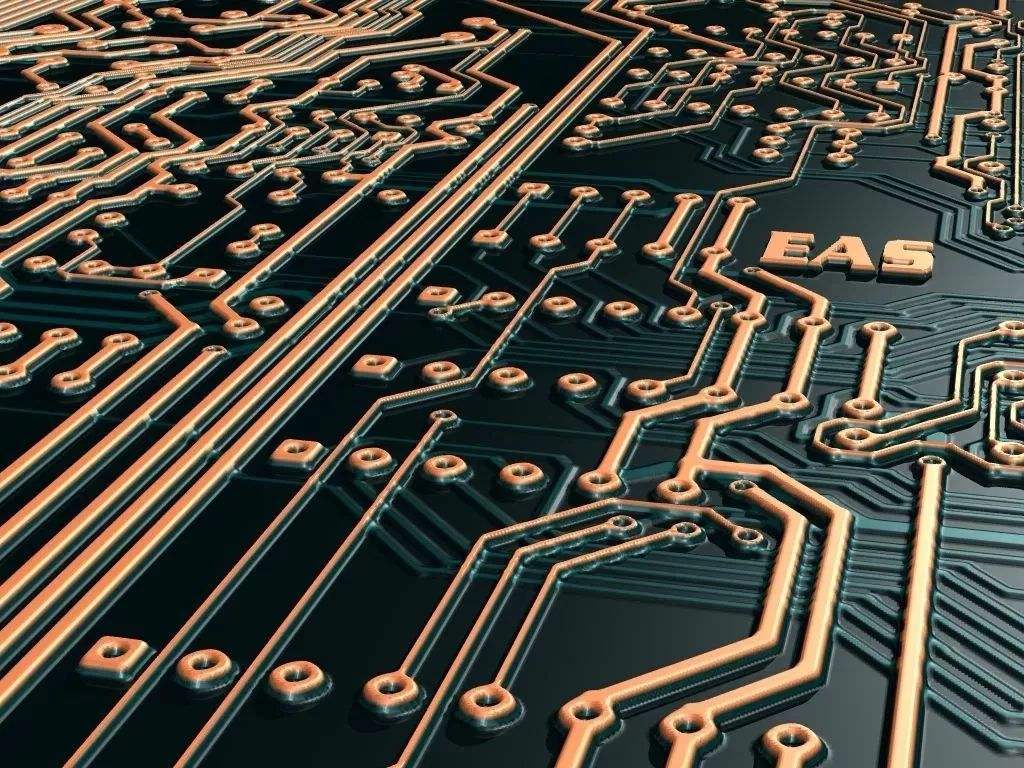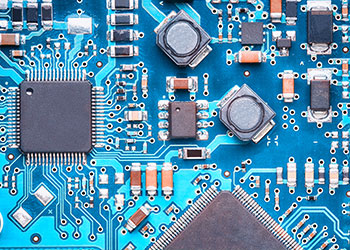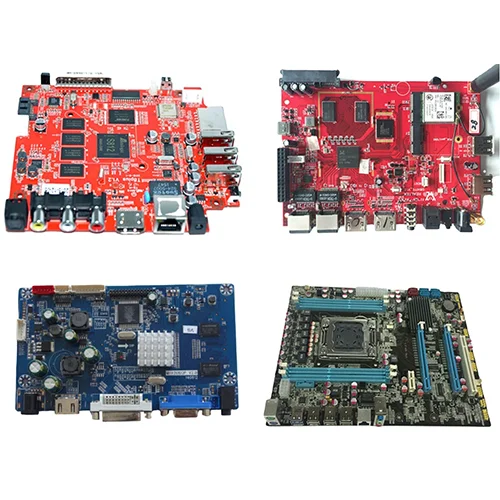
PCB Design of Digital Analog Mixed Circuit
In the design of high speed PCB, the interference problem in the design of digital analog mixed circuit PCB is always a difficult problem In particular, analog circuits are usually signal sources Whether the signal can be received and converted correctly is an important factor in PCB design By analyzing the interference mechanism of the hybrid circuit and combining with the design practice, this paper discusses the general processing method of the hybrid circuit, and verifies it through a design example A printed circuit board (PCB) is a support for circuit elements and devices in electronic products Now many PCB are no longer single functional circuits, but digital and analog circuits are mixed Data is usually collected and received in analog circuits, while bandwidth and gain must be digitized for software control. In addition, digital circuits and analog circuits usually coexist on one board, even if they share the same components Considering the mutual interference between them and the impact on circuit efficiency, the circuit layout and routing must have certain principles The special requirements for transmission lines in the design of mixed signal PCB and the requirements for isolation of noise coupling between analog and digital circuits increase the complexity of layout and wiring during design Here, by analyzing the layout and routing design of high-density mixed signal PCB, the desired PCB design goal is achieved
PCB board

1. The generation mechanism of digital-analog hybrid circuit interference
Compared with digital signals, analog signals are more sensitive to noise, because the operation of analog circuits depends on changing current and voltage, and any minor interference will affect their normal operation, while the operation of digital circuits depends on the receiver detecting high or low levels according to predefined voltage levels or thresholds, and has a certain anti-interference ability But in the mixed signal environment, compared with analog signals, digital signals are noise sources When digital circuit works, there are only two kinds of voltage, high level and low level, stable effective voltage When the digital logic output changes from high voltage to low voltage, the grounding pin of the device will discharge and generate switching current, which is the switching action of the circuit The faster the digital circuit is, the shorter the switching time is usually required When a large number of switching circuits change from logic high level to logic low level at the same time, a large number of switching currents will result due to the insufficient ability of the grounding wire to transmit current The fluctuation of logic grounding voltage is called ground rebound As shown in Figure 1 If the ground bounce noise and power interference caused by digital circuits are coupled into analog circuits, the efficiency of analog circuits will be affected Because quite a lot of interference sources are generated by power supply and grounding bus, the noise interference caused by ground wire, grounding and power supply design are particularly important in PCB design
2. General processing principles for PCB design of digital-analog hybrid circuits
The above mentioned the generation mechanism of hybrid circuit interference, how to reduce the mutual interference between digital signals and analog signals? Two basic principles of electrical compatibility (EMC) must be understood before design: The first principle is to minimize the area of the current loop The second principle is that the system uses only one reference plane Conversely, if the system has two reference planes, a dipole antenna can be formed These two situations should be avoided as far as possible in the design
(1) Layout and routing principles. One of the first factors to be considered in component layout is to separate analog circuit from digital circuit The analog signal is wired in the analog area of all layers of the circuit board, and the digital signal is wired in the digital circuit area In this case, the digital signal loop current does not flow into the analog signal ground For some lines with high frequency and special requirements, use differential lines or mask lines if necessary Sometimes due to the input position/output connector, it is necessary to mix the wiring of digital and analog circuits. In this case, analog and digital circuits are likely to interfere with each other This is to avoid running the digital clock line and high-frequency analog signal line near the analog power plane, otherwise, the noise of the power signal will be coupled to the sensitive analog signal In an attempt to achieve a low impedance power supply and grounding network, the inductive reactance of digital circuit conductors should be minimized, and the capacitive coupling of analog circuits should be minimized The frequency of digital circuit is very high, and the sensitivity of analog circuit is very strong For signal lines, high-frequency digital signal lines should be as far away from sensitive analog circuit equipment as possible
(2) Handling of power and ground. In the design of complex hybrid circuit boards, the layout and processing of grounding wires are important factors to improve circuit efficiency It is recommended to separate digital and analog grounding on the mixed signal board to achieve isolation between digital and analog grounding But this method tends to bridge the gap, which will lead to a sharp increase in electromagnetic radiation and signal crosstalk Understanding the location and pipeline of the current returning to the ground is the key to optimize the design of the mixed signal board If the ground layer must be divided, the wiring must pass through the gap between the partitions. A single point connection can be made between the separated grounding to form a connection bridge between the two grounding, and then the wiring is made through the connection bridge With this conduit, the DC return path, or optical isolation device, transformer, etc. can be provided under each signal line It can be used to realize the signal crossing the division gap However, in practical work, PCB design tends to use unified grounding Through the division of digital circuit and analog circuit and proper signal wiring, some difficult layout and wiring problems can usually be solved without some potential faults caused by grounding separation By comparing the circuit board test results, it is also found that the unified solution is superior to the segmented solution in terms of function and EMC performance The mixed signal PCB usually has separate digital and analog power supplies. Split power planes should be used near and below the ground plane The power plane can couple RF current to circuits that can be connected to space In order to reduce this coupling effect, the power planes are required to be physically 20H smaller than their adjacent ground planes (H refers to the distance between the power supply and the ground plane)
(3) Handling of hybrid devices. Common hybrid devices include crystal oscillators, high-speed AD devices, etc, There are two parts in the device: digital circuit and analog circuit Generally, AGND and DGND pins should be externally connected to the same low impedance analog ground plane, and the conductor should be as short as possible Any additional impedance of DGND will couple more digital noise to analog circuits inside the equipment through parasitic capacitance Of course, this will cause the digital current in the converter to flow into the analog ground plane, but it will have much less interference than connecting the DGND pin of the converter to the noisy digital ground plane Similar to the ground, analog and digital power supply pins should also be connected to the analog power supply plane through appropriate bypass capacitors, as close as possible to each power supply pin If necessary, isolate the analog power supply pin from the digital power supply pin by connecting it to the inductor
(4) Add decoupling capacitors. Decoupling capacitors can eliminate high-frequency interference Because the capacitance reactance of the capacitor is inversely proportional to the frequency, shunt capacitors between the signal and the ground can bypass high-frequency noise In principle, a 0.01mF~0. 1mF ceramic chip capacitor is added to each integrated chip, which not only enables the chip to store energy, but also provides and absorbs charging and discharging energy when the chip circuit opens and closes the door, but also bypasses the screening program High frequency noise components of equipment Adding a 10mF~100mF electrolytic capacitor (tantalum capacitor) to the power input can suppress the noise interference of the power supply. Of course, the lead of the new capacitor should not be too long, because the lead length of the capacitor is a very important parameter. The longer the lead time is, the greater the inductance is, and the lower the resonant frequency of the capacitor is. The influence of frequency filtering on high-frequency noise will be weakened or even disappear Keep the capacitor as close to the chip as possible
(5) A large area of copper clad foil is connected to the analog ground. The analog circuit is covered with a large area of copper foil, and dense holes are drilled in the blank area to connect to the analog grounding, which plays a mask isolation role, thus reducing the mutual interference between analog signals and also playing a role in heat dissipation
(6) The power line and the ground line should be as short and thick as possible, especially the lines connecting the digital power supply and the analog power supply on the magnetic beads must be very thick, because in addition to reducing the voltage drop, it is more important to reduce coupling noise
3. PCB design example of hybrid circuit
The layout of the printed board separates the analog circuit from the digital circuit. Each channel is completely independent within a certain distance to ensure that the analog signals of each channel do not interfere with each other The analog circuit shall be placed as close to the edge of the circuit board as possible, and the digital circuit shall be connected as close to the power supply as possible to reduce the dt effect caused by di/digital switch In the division of power supply and grounding, the analog signals of this printed circuit board are on the surface, and they are as short as possible The second and nineteenth layers next to the analog signal are complete and unified analog ground planes to ensure that the return path and impedance of the analog signal will not cause electromagnetic interference on the divided ground The high-speed signal layer is adjacent to the ground plane layer. The important signal lines are routed to the stripline, and the clock and reset sensitive signal lines are routed to the third layer between the two ground planes Both digital and analog power have separate planes, which are separate, but each power plane is also directly adjacent to the ground plane The high-speed A/D mixing equipment is connected to the analog grounding on the circuit board, that is, the external grounding pin of the equipment is connected to the analog grounding, the power supply pin is connected to the analog power supply, and a decoupling capacitor is added beside the power supply pin to eliminate high-frequency interference The lines connecting power supply or ground on the magnetic bead inductor should be thickened. In addition, some signal lines should be drilled to connect to the power supply or ground plane, which can reduce voltage drop and noise Large through holes are sometimes used Connection to the aircraft can also meet the requirements High frequency signal line is strictly controlled by line width and line spacing to meet impedance requirements They are all manually wired. Dense holes are drilled in the blank area of the large area copper foil in the analog circuit part to connect to the analog ground The 100M clock signal line on the PCB is simulated and analyzed by using the design software. The signal transmission is basically free from interference and meets the requirements of telecommunications The printed circuit board produced after debugging shows that digital signals have little interference with analog signals, and the number of parameters is good








